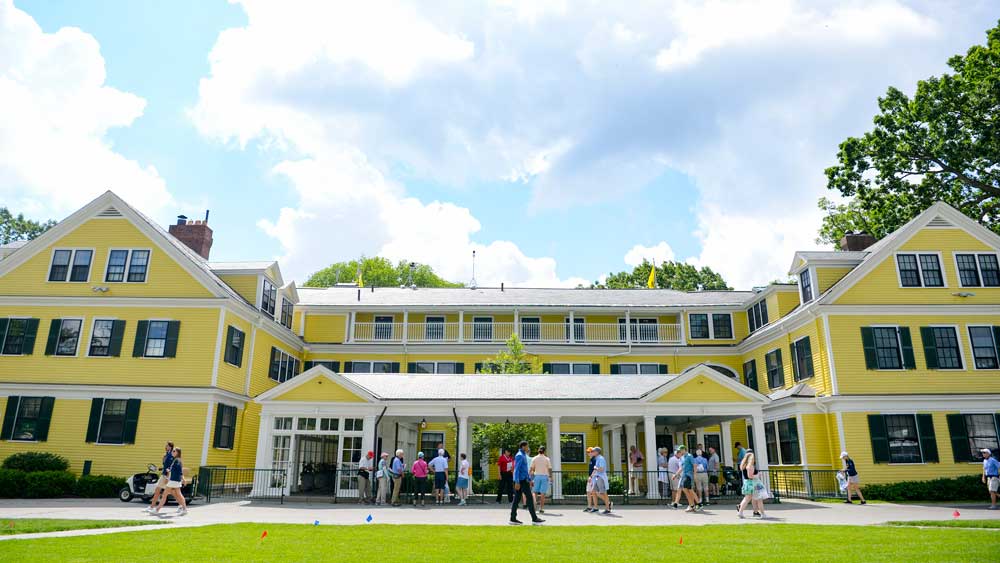You might be inclined to roll your eyes at the name of the Boston-area home of the 2022 U.S. Open: The Country Club.
How self-important, right?!
THE Country Club, as if it’s the only one in the Western Hemisphere.
Here’s the thing, though: For a while it was.
Back in the 1860s, a young Bostonian named James Murray Forbes moved to China to help run his family’s trading business. The firm trafficked tea, silks and spices across the Far East and prospered at it — so much so that Forbes and his ex-pat trading buddies had the funds to set up their own social club in Shanghai.
They named it, you guessed it, The Country Club.
Murray lived in China for only eight years. When he returned with great wealth to Boston, he quickly formed another club, in 1882, for, as he put it, “thirty leading men of sporting sympathies,” according to The Country Club’s official club history. Among the activities at their disposal: croquet, lawn tennis and bowling. (Golf wouldn’t become part of the mix for another decade.)
Forbes christened the club with the same name as his Shanghai hangout, and it “quickly passed into common language.” In 1895, Harper’s magazine proclaimed that Forbes’ creation was the “essence of ideal country-club life.” At least one other club liked the name so much, it nicked it. If you know the Cleveland golf scene, you might be familiar with The Country Club founded there in 1889, near the shore of Lake Erie.
Since The Country Club’s founding (Brookline edition), thousands of other country clubs have come on line in the U.S., but The Country Club’s name has remained unchanged, potential vagueness or branding concerns be damned. Why change when you’re the undisputed OG? Even if the name does sound a little smug.
“If you don’t the know history, it absolutely sounds pretentious,” Fred Waterman told me by phone Tuesday afternoon. Waterman is The Country Club’s historian and a former sportswriter who covered the 1988 U.S. Open at The Country Club for United Press International. “But if you know the history, it sounds quite logical.”
In other words, Waterman was saying, because the club was the first of its kind — in this hemisphere, anyway — it had and has every right to the name.
“If you’re the only one, you don’t need an identifier,” he said. “In the same way, Adam and Eve did not need a last name.”
Amen to that.
